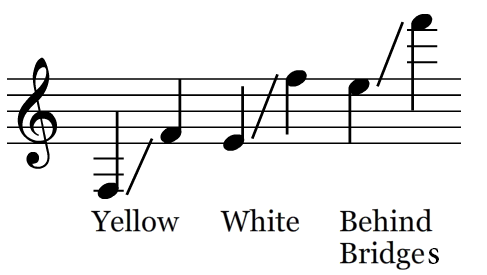|
Bahramji
Bahram Pourmand (), better known by his stage name Bahramji (born 1952 in Kermanshah) is a Kurdish New Age musician from Iran. Life As a child he heard the old Sufi melodies, which now form the source of inspiration for his music. At the age of 13, he learned to play the Persian string instrument the santur and soon began to perform several shows in his home town. In 1977 he left Iran, traveled to India for study, and later emigrated to Europe. After his life and creative work in India, where he stayed for a long time, he discovered the island of Ibiza in Spain in 2003. There he met many other musicians, DJs and producers who inspired him to expand his style. Music style By making music for hikers from different cultures, he has changed his style, which has been influenced by the traditional Persian music, and has thus found his own style. Particular to his music is that he pours old songs into a new form and through this fusion creates a meditative, musical era. Bahram's inst ... [...More Info...] [...Related Items...] OR: [Wikipedia] [Google] [Baidu] |
Kermanshah
Kermanshah ( fa, کرمانشاه, Kermânšâh ), also known as Kermashan (; romanized: Kirmaşan), is the capital of Kermanshah Province, located from Tehran in the western part of Iran. According to the 2016 census, its population is 946,681 (2021 estimate 1,047,000). A majority of the people of Kermanshah are bilingual in Southern Kurdish and Persian, and the city is the largest Kurdish-speaking city in Iran. Kermanshah has a moderate and mountainous climate.روزنامه سلام کرمانشاه Persian (Kurdish)آشنایی با فرهنگ و نژاد استان کرمانشاه (Persian) [...More Info...] [...Related Items...] OR: [Wikipedia] [Google] [Baidu] |
Kurdish People
ug:كۇردلار Kurds ( ku, کورد ,Kurd, italic=yes, rtl=yes) or Kurdish people are an Iranian peoples, Iranian ethnic group native to the mountainous region of Kurdistan in Western Asia, which spans southeastern Turkey, northwestern Iran, northern Iraq, and northern Syria. There are exclaves of Kurds in Central Anatolia Region, Central Anatolia, Khorasan Province, Khorasan, and the Caucasus, as well as significant Kurdish diaspora communities in the cities of western Turkey (in particular Istanbul) and Western Europe (primarily Kurds in Germany, in Germany). The Kurdish population is estimated to be between 30 and 45 million. Kurds speak the Kurdish languages and the Zaza–Gorani languages, which belong to the Western Iranian languages, Western Iranian branch of the Iranian languages. After World War I and the defeat of the Ottoman Empire, the victorious Allies of World War I, Western allies made provision for a Kurdish state in the 1920 Treaty of Sevres, Treaty ... [...More Info...] [...Related Items...] OR: [Wikipedia] [Google] [Baidu] |
New Age Music
New-age is a genre of music intended to create artistic inspiration, relaxation, and optimism. It is used by listeners for yoga, massage, meditation, and reading as a method of stress management to bring about a state of ecstasy rather than trance, or to create a peaceful atmosphere in homes or other environments. It is sometimes associated with environmentalism and New Age spirituality; however, most of its artists have nothing to do with "New age spirituality", and some even reject the term. New-age music includes both acoustic forms, featuring instruments such as flutes, piano, acoustic guitar and a wide variety of non-Western acoustic instruments, and electronic forms, frequently relying on sustained synth pads or long sequencer-based runs. Vocal arrangements were initially rare in the genre, but as it has evolved, vocals have become more common, especially those featuring Native American-, Sanskrit-, or Tibetan-influenced chants, or lyrics based on mythology such a ... [...More Info...] [...Related Items...] OR: [Wikipedia] [Google] [Baidu] |
Iran
Iran, officially the Islamic Republic of Iran, and also called Persia, is a country located in Western Asia. It is bordered by Iraq and Turkey to the west, by Azerbaijan and Armenia to the northwest, by the Caspian Sea and Turkmenistan to the north, by Afghanistan and Pakistan to the east, and by the Gulf of Oman and the Persian Gulf to the south. It covers an area of , making it the 17th-largest country. Iran has a population of 86 million, making it the 17th-most populous country in the world, and the second-largest in the Middle East. Its largest cities, in descending order, are the capital Tehran, Mashhad, Isfahan, Karaj, Shiraz, and Tabriz. The country is home to one of the world's oldest civilizations, beginning with the formation of the Elamite kingdoms in the fourth millennium BC. It was first unified by the Medes, an ancient Iranian people, in the seventh century BC, and reached its territorial height in the sixth century BC, when Cyrus the Great fo ... [...More Info...] [...Related Items...] OR: [Wikipedia] [Google] [Baidu] |
Sufi
Sufism ( ar, ''aṣ-ṣūfiyya''), also known as Tasawwuf ( ''at-taṣawwuf''), is a mystic body of religious practice, found mainly within Sunni Islam but also within Shia Islam, which is characterized by a focus on Islamic spirituality, ritualism, asceticism and esotericism. It has been variously defined as "Islamic mysticism",Martin Lings, ''What is Sufism?'' (Lahore: Suhail Academy, 2005; first imp. 1983, second imp. 1999), p.15 "the mystical expression of Islamic faith", "the inward dimension of Islam", "the phenomenon of mysticism within Islam", the "main manifestation and the most important and central crystallization" of mystical practice in Islam, and "the interiorization and intensification of Islamic faith and practice". Practitioners of Sufism are referred to as "Sufis" (from , ), and historically typically belonged to "orders" known as (pl. ) – congregations formed around a grand who would be the last in a chain of successive teachers linking back to Muha ... [...More Info...] [...Related Items...] OR: [Wikipedia] [Google] [Baidu] |
Santur
The santur (also ''santūr'', ''santour'', ''santoor'') ( fa, سنتور), is a hammered dulcimer of Iranian origins.--- Rashid, Subhi Anwar (1989). ''Al-ʼĀlāt al-musīqīyya al-muṣāhiba lil-Maqām al-ʻIrāqī''. Baghdad: Matbaʻat al-ʻUmmāl al-Markazīyya. History The santur was invented and developed in the area of Iran and Mesopotamia. "The earliest sign of it comes from Assyrian and Babylonian stone carvings (669 B.C.); it shows the instrument being played while hanging from the player's neck" (35). This instrument was traded and traveled to different parts of the Middle East. Each country customized and designed its own versions to adapt to their musical scales and tunings. The original santur was made with wood and stones and strung with goat intestines. The Mesopotamian santur has been claimed to be the father of the harp, the Chinese yangqin, the harpsichord, the qanun, the cimbalom, and the American and European hammered dulcimers. Name The name 'santur' co ... [...More Info...] [...Related Items...] OR: [Wikipedia] [Google] [Baidu] |
Ibiza
Ibiza (natively and officially in ca, Eivissa, ) is a Spanish island in the Mediterranean Sea off the eastern coast of the Iberian Peninsula. It is from the city of Valencia. It is the third largest of the Balearic Islands, in Spain. Its largest settlements are Ibiza Town ( ca, Vila d'Eivissa, or simply ), Santa Eulària des Riu, and Sant Antoni de Portmany. Its highest point, called Sa Talaiassa (or Sa Talaia), is above sea level. Ibiza is well known for its nightlife and electronic dance music club scene in the summer, which attract large numbers of tourists. The island's government and the Spanish Tourist Office have worked toward promoting more family-oriented tourism. Ibiza is a UNESCO World Heritage Site. Ibiza and the nearby island of Formentera to its south are called the Pine Islands, or " Pityuses". Names The official, Catalan name is ''Eivissa'' (). Its name in Spanish is ''Ibiza'' (). In British English, the name is usually pronounced in an approximatio ... [...More Info...] [...Related Items...] OR: [Wikipedia] [Google] [Baidu] |
Persian Traditional Music
Persian traditional music or Iranian traditional music, also known as Persian classical music or Iranian classical music, refers to the classical music of Iran (also known as ''Persia''). It consists of characteristics developed through the country's classical, medieval, and contemporary eras. It also influenced areas and regions that are considered part of Greater Iran. Due to the exchange of musical science throughout history, many of Iran's classical modes are related to those of its neighboring cultures. Iran's classical art music continues to function as a spiritual tool, as it has throughout history, and much less of a recreational activity. It belongs for the most part to the social elite, as opposed to the folkloric and popular music, in which the society as a whole participates. However, components of Iran's classical music have also been incorporated into folk and pop music compositions. History The history of musical development in Iran dates back thousands of years ... [...More Info...] [...Related Items...] OR: [Wikipedia] [Google] [Baidu] |
Setar
A setar ( fa, سهتار, ) is a stringed instrument, a type of lute used in Persian traditional music, played solo or accompanying voice. It is a member of the tanbur family of long-necked lutes with a range of more than two and a half octaves. Originally a three stringed instrument, a fourth string was added by the mid 19th century. It is played with the index finger of the right hand. It has been speculated that the setar originated in Persia by the 9th century C.E. A more conservative estimate says "it originated in the 15th century, or even earlier." Although related to the tanbur, in recent centuries, the setar has evolved so that, musically, it more closely resembles the tar, both in tuning and playing style. Etymology According to Curt Sachs, Persians chose to name their lutes around the word ''tar'', meaning string, combined with a word for the number of strings. Du + tar is the 2-stringed dutār, se + tar is the 3-stringed setār, čartar (4 strings), pančtār ( ... [...More Info...] [...Related Items...] OR: [Wikipedia] [Google] [Baidu] |
Rumi
Jalāl al-Dīn Muḥammad Rūmī ( fa, جلالالدین محمد رومی), also known as Jalāl al-Dīn Muḥammad Balkhī (), Mevlânâ/Mawlānā ( fa, مولانا, lit= our master) and Mevlevî/Mawlawī ( fa, مولوی, lit= my master), but more popularly known simply as Rumi (30 September 1207 – 17 December 1273), was a 13th-century PersianRitter, H.; Bausani, A. "ḎJ̲alāl al-Dīn Rūmī b. Bahāʾ al-Dīn Sulṭān al-ʿulamāʾ Walad b. Ḥusayn b. Aḥmad Ḵh̲aṭībī." Encyclopaedia of Islam. Edited by: P. Bearman, Th. Bianquis, C.E. Bosworth, E. van Donzel and W.P. Heinrichs. Brill, 2007. Brill Online. Excerpt: "known by the sobriquet Mewlānā, persian poet and founder of the Mewlewiyya order of dervishes" poet, Hanafi faqih, Islamic scholar, Maturidi theologian and Sufi mystic originally from Greater Khorasan in Greater Iran. Rumi's influence transcends national borders and ethnic divisions: Iranians, Tajiks, Turks, Greeks, Pashtuns, other C ... [...More Info...] [...Related Items...] OR: [Wikipedia] [Google] [Baidu] |
Kurdish Musicians
Kurdish may refer to: *Kurds or Kurdish people *Kurdish languages *Kurdish alphabets *Kurdistan, the land of the Kurdish people which includes: **Southern Kurdistan **Eastern Kurdistan **Northern Kurdistan **Western Kurdistan See also * Kurd (other) *Kurdish literature *Kurdish music *Kurdish rugs *Kurdish cuisine *Kurdish culture *Kurdish nationalism Kurdish nationalism (, ) is a nationalist political movement which asserts that Kurds are a nation and espouses the creation of an independent Kurdistan from Iran, Iraq, Syria and Turkey. Early Kurdish nationalism had its roots in the Ottoman ... {{disambiguation Language and nationality disambiguation pages ... [...More Info...] [...Related Items...] OR: [Wikipedia] [Google] [Baidu] |

.jpg)




